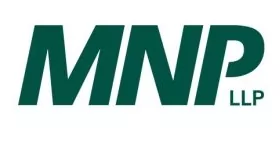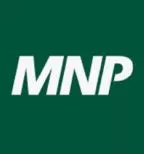Welcome to MNP's blog series in support of Fraud Prevention Month. Throughout the month of March, we will be exploring various fraud prevention issues affecting businesses and individuals.
This first installment discusses the fraud prevention aspects of a whistleblower reporting service.
Whistleblower Reporting Line
Consider this hypothetical, yet common scenario.
John is an accounts payable clerk at a mid-sized, private
corporation. His direct supervisor, Bob, is the accounts payable
manager. Bob submits an invoice for payment and processing. All of
the required documents are provided, with approval signatures,
however, John didn't recognize the vendor name and the
vendor's address is a post office box within the city.
John raises his concern with Bob and is told that he is paid to
process the invoices and payments, not to question them. Not
knowing how to proceed and in fear of losing his job, John process
the invoices and continue on with his day-to-day activities.
It turns out that Bob has been submitting false invoices from a fictitious vendor, forging approval signatures and depositing the cheques into an account that he controlled.
While a red flag was raised regarding the unknown vendor, it was raised with the individual who was perpetrating the fraud. The lack of an independent and confidential reporting mechanism creates an inherent conflict of interest. As a front line employee, questions and concerns are generally brought up through the chain of command and in this hypothetical case, that is the accounts payable manager.
After initially reporting his concern to Bob, John is put in a precarious situation. The response from Bob was not a satisfactory answer, however, John is reluctant to pursue the matter out of fear of appearing to be insubordinate to Bob and a perceived threat to his job security. Without a whistleblower policy, John's options for a resolution to his concerns are limited.
Had the company implemented an internal whistleblower policy, it may have provided John with guidance on how to raise his concerns with the appropriate level of authority. Whistleblower policies set out how an employee can report their concerns. The policy should also outline the whistleblower's rights and the measures taken to protect the individual from retaliation and explain how complaints will be treated and / or investigated.
The above example is a common scenario that could go undetected for a very long time, resulting in significant losses to the company. It is also a situation that could be avoided with the use of a whistleblower reporting service.
Some of the largest frauds in history have been discovered by a tip from an employee or other individual who decided to blow the whistle. Many times, especially when the concern is related to an individual who is in a position of authority, an employee may be reluctant to report them in fear of reprisal. While there is legislation to protect a whistleblower's rights, the thought of being identified as the whistleblower is sometimes enough to deter somebody from reporting their concerns.
Access to a third-party whistleblowing service can alleviate these concerns as they are completely anonymous and confidential. Potential whistleblowers may be more inclined to report an act of misconduct knowing that the reporting service is available at any time, day or night and that their concerns will be monitored and tracked by a third party.
According to the Association of Certified Fraud Examiners, the
most common form of fraud detection with respect to occupational
fraud is through a tip. Approximately 42% of fraud cases are
detected by a tip from a whistleblower.
Statistics show that more than 45% of the tips received are from
individuals outside the organization, including customers, vendors,
competitors and shareholders.
While a whistleblower hotline, on its own, can be an effective tool in the detection and prevention of fraud, organizations can maximize its effectiveness though awareness, education and training for employees in conjunction with a demonstrated corporate culture that promotes ethical behaviour and a commitment to fraud detection and prevention. In addition, with a significant portion of tips coming from external sources, organizations can benefit from informing its customers, vendors and shareholders that a fraud reporting mechanism is available for reporting misconduct.
Whistleblower hotlines or reporting services are a simple way to provide an independent, cost-effective tool in combating fraud within an organization.
The content of this article is intended to provide a general guide to the subject matter. Specialist advice should be sought about your specific circumstances.

